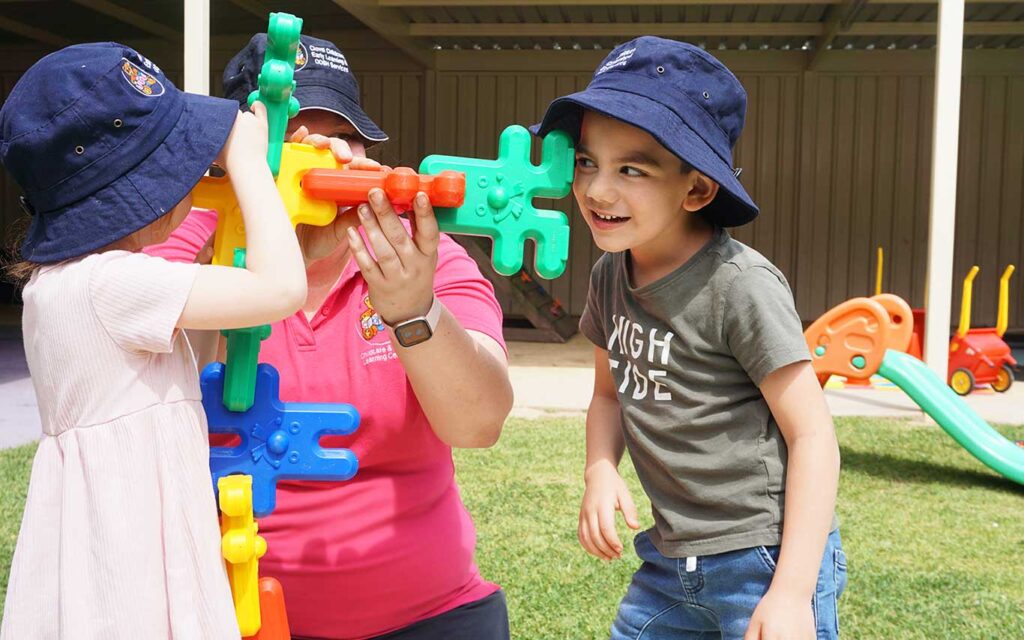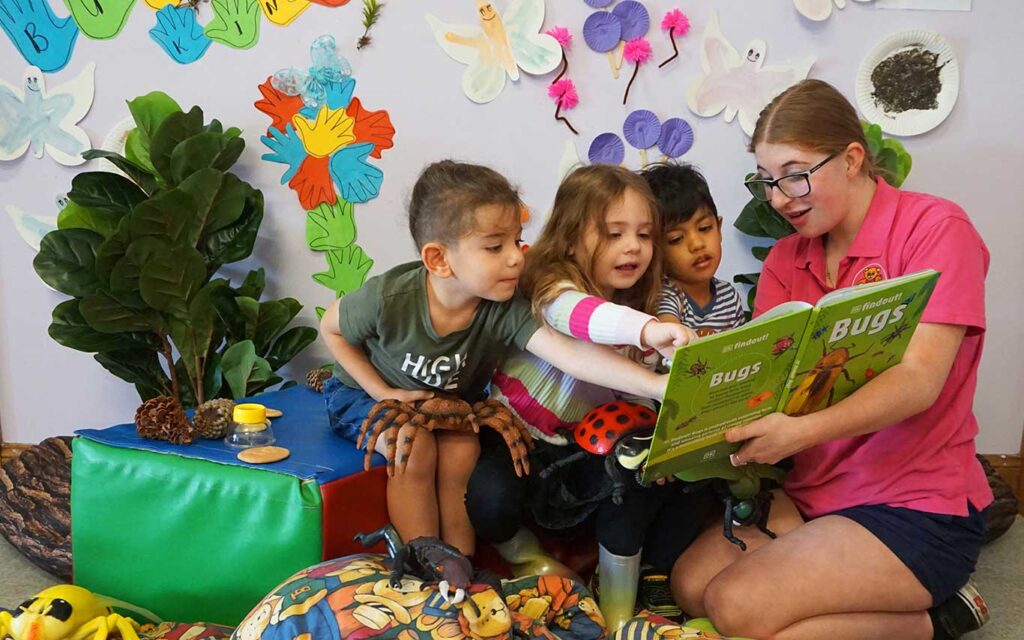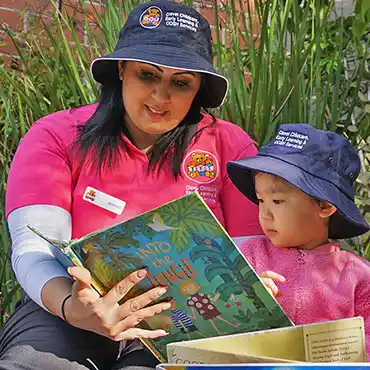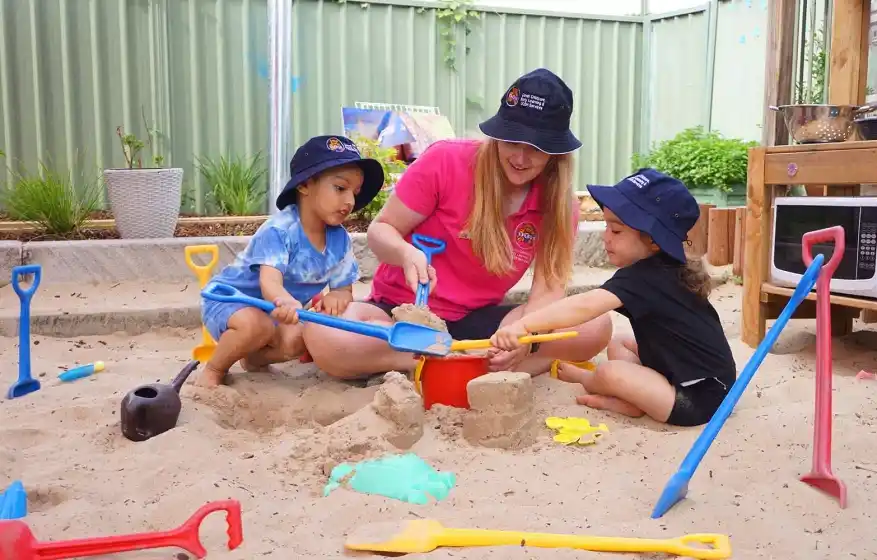There isn’t much that makes us prouder than watching our children get involved with a kids’ performing arts program. When a child discovers a passion for music, drama, or other exciting activities, it is often a sign of significant growth. Early childhood creativity plays a massive part in cognitive, emotional, and social development. It is also important to remind yourself that arts education in preschool isn’t about playing musical instruments or being able to recite Shakespeare. The smallest activities have a tremendous impact on the development of a child, and they are all things that we can do at home. Storytelling, role playing, dancing, and expressive movement are just a few of the ways we can begin to build the foundations for our children’s success. Today, we want to discuss the fundamentals of kids’ performing arts and how early childhood creativity is an incredible tool for building confidence in kids. Clovel is here to help you build the nurturing and creative environment your child needs to thrive.
Why Performing Arts Matter in Early Childhood Development
When we introduce subjects like music, drama, and dance to our children, we play a crucial part in enhancing their overall development. These activities are not only fun for children, but they also improve communication skills, problem-solving capability, cognitive development, and emotional intelligence. Kids performing arts programs are designed to provide exposure to various forms, but the benefits of drama for children can also be experienced through simple at-home activities, such as playing kitchen or telling stories with plushies. Engaging in early childhood creativity can help children learn to express themselves, develop empathy, and improve their memory and focus in various areas.
The Benefits of Drama for Children
When we think of drama, we tend to think of performing plays and other similar activities that require extensive knowledge of the subject. Thankfully, when it comes to kids’ performing arts, drama-based activities come in all shapes and sizes, enabling parents to get involved and enhance their child’s development in numerous ways. Drama activities, such as role-playing or storytelling, are brilliant ways to build confidence in kids with minimal resources. Fostering a creative home environment will massively support a child’s arts education in preschool and help them excel when taking part in kid’s performing arts. When we begin to do this, these are some of the benefits our children will experience:
Social and Emotional Development
One of the most significant benefits of drama for children is how it allows them to express themselves. Through drama-based activities, they are more likely to develop a better understanding of the world around them, foster empathy, build relationships, and see things from different perspectives. Building confidence in kids through early childhood creativity is immeasurably rewarding.

Language and Communication
The more often children participate in drama, the more practice they will have in language and communication. Again, language and communication are critical for building confidence in children and helping them learn to express themselves properly. Through kids’ performing arts, we can introduce several fundamental skills for them to learn in a fun and interactive way.

Cognitive Development and Critical Thinking
Arts education in preschool encourages young children to respond quickly and think on their feet. Activities like roleplaying can improve memory, concentration, critical thinking skills, and overall cognitive development. The flexibility of these activities also means we can tailor them to align with the needs of the child, ensuring they are always learning and having fun.

Early Childhood Creativity – Unlocking a Child’s Imagination
Early childhood creativity is critical for laying the foundations a child needs to succeed in a plethora of ways. Kids performing arts activities work wonders at stimulating their imagination and helping them to explore their own thoughts and ideas. To ensure that a child gets the most out of their arts education in preschool, it helps to keep activities unstructured. Doing this gives them free rein in decision making, helping to unlock the full potential of their imagination. The more we nurture a child’s creativity and natural curiosity, the higher the chances of success throughout their education and beyond.
Arts Education in Preschool – Why It Should Be a Priority
Some believe that performing arts are reserved only for the creative. This sometimes leads to the belief that early childhood creativity is not as important as other subjects. However, kids’ performing arts classes actually complement subjects such as mathematics, science, and English, so it is vital to incorporate creativity into a learning environment whenever possible.
Building Confidence in Kids Through the Performing Arts
Performing arts is a combination of social activities and interactions and the development of new skills. These are brilliant tools for building confidence in kids and should never be underestimated. Arts education in preschool is crucial for developing some of the most essential skills to succeed, allowing them to express themselves and develop a sense of self-assurance.
How Parents Can Support Their Child’s Confidence Through Performing Arts
There are numerous ways parents can support early childhood creativity. Incorporating performing arts into home activities doesn’t require impeccable musical knowledge or an understanding of theatre. Any activity that allows children to explore new ideas, express themselves, and get creative will help. This might include playing kitchen, shopkeeper, or bank, or even reading a story and acting it out with plush toys. When it comes to early childhood creativity, every little bit helps.
Frequently Asked Questions (FAQs)
How does drama help children develop social skills?
When children take part in drama activities, they learn how to work with others, understand their perspectives, and develop empathy. The more they partake in group activities and performances, the more they communicate with others and build relationships.
What performing arts activities are best for preschoolers?
There are several activities to promote early childhood creativity. Some of the easiest to do at home are storytelling and roleplay, singing, creative play, and dancing. If you would like to know more, feel free to reach out to Clovel Childcare, and we will be happy to provide advice on kids’ performing arts activities.
How Clovel Childcare Integrates Performing Arts into Early Learning?
Everything we do at Clovel Childcare revolves around self-expression, creativity, and critical thinking. Through a play-based learning approach, we weave drama, music, dance, storytelling, and social skills into every activity. To find out more about what we do to support the growth, development, and well-being of children in our care, contact us anytime, and we will be happy to answer all of your questions.












